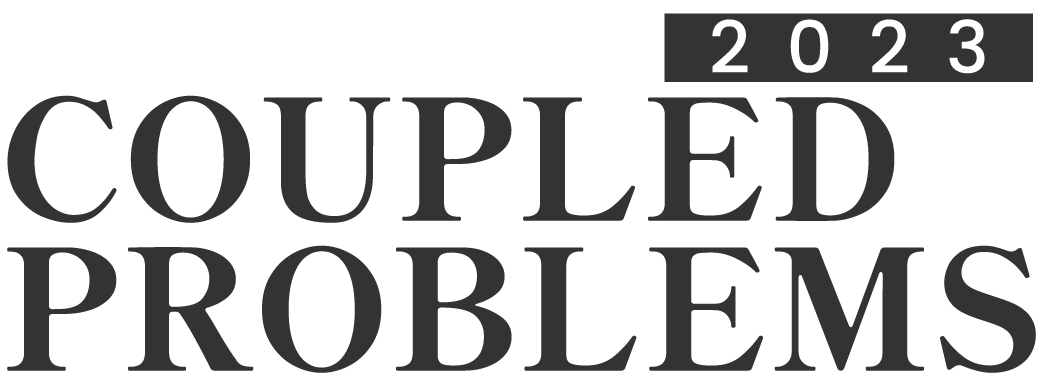

Multistep interface coupling for high-order adaptive black-box multiphysics simulations
Please login to view abstract download link
Multiphysics problems often arise in engineering and involve various models corresponding to different physical phenomena (e.g. mechanics, fluid flow) and time scales. Often, each model is associated with a specific spatial domain, and the models are coupled through lower-dimensional interfaces (e.g. solid-gas contact surface). Implementing a solver that handles them in a monolithic manner is complex and costly, hence it is preferable to rely on existing physic-specific solvers that are already available and validated for each subdomain. These must however be coupled adequately to correctly capture the multiphysical interactions. In particular, so-called coupling variables must be exchanged (e.g. heat fluxes) in a manner such that the coupling is accurate in time and stable. In this work, we present a generic coupling strategy inspired by co-simulation approaches used for mechanical systems with a focus on PDE-related applications. Using the evolution of the coupling variables across multiple previous coupling time points, polynomial approximations in time of these are generated and used as input for the solvers, resulting in high-order convergence of the coupling error in time. Objective error estimates enable a dynamic adaptation of the coupling time step. While explicit coupling procedures are simple to implement and generalise basic first order couplings often found in the literature, implicit procedures can be designed to improve stability and accuracy, requiring the resolution of a fixed-point problem at each coupling step. We demonstrate the efficiency of the proposed strategy on a test case involving the heat transfer between two solid materials through a reactive surface, each solid being solved separately. High-order convergence in time is obtained on the overall coupled solution, while keeping a reasonable computational cost. Stability limits are investigated numerically and theoretically. Finally, we show that time adaptivity may lead to substantial gains in runtime while ensuring a prescribed accuracy.

